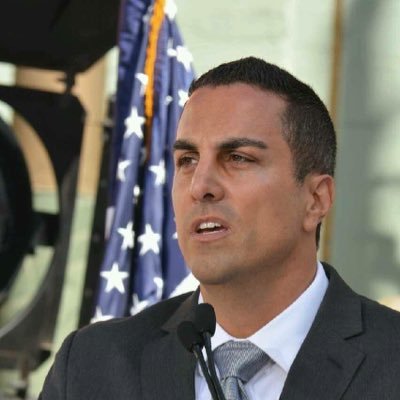
Orange County Supervisor Don Wagner (screen capture, Facebook)
Orange County Tackles Homeless Issue by Regulating Group Homes
The county is now known as the ‘Rehab Rivera’ with addicts moving in from out of state
By Michelle Mears, September 27, 2019 11:10 am
There are myriad of situations exasperating the homeless issue in California including the unregulated business of group homes. On Tuesday, the Orange County Board of Supervisors tackled this issue by unanimously passing an ordinance; requiring operators to obtain a license to run group homes.
Supervisor Don Wagner said people living in North Tustin were concerned about the negative changes being made to the neighborhood where they bought homes to raise families.
“The county needs to do something like this because these homes are proliferating,” Wagner said. “I heard from the residents that unlicensed sober living homes are a growing concern.”
Wagner acknowledged there are good facilities however the bad actors who are concentrating their business for profit at the expense of homeowners and their lives needed to be addressed.
“This ordinance will strike a balance between the recovering adults looking to put their lives back in order, with residents who deserve to maintain a peaceful single family character of their neighborhoods,” said Wagner.
Residents complained of increase in noise, trash, smoking, loitering, parking and general nuisance. Inside the homes were reports of overdosing, assaults and more.
Wagner, who spearheaded the push for the regulations held town halls, met with the sheriff department, and health care agencies prior to directing the new ordinance before the board.
Orange County residents have been grappling with recovery homes in residential neighborhoods for years. In 2016, Top of the World residents in Laguna Beach fought with Pillars Recovery Center. Residents and local school officials have been asking to have legislation passed to allow cities to have more control over the facilities. State licensed recovery and care facilities differ from sober living homes. Sober living homes don’t require care and supervision and have zero limits on residency. They also are not required to file paperwork with the city to operate.
These facilities also attract other criminal activity, in 2018 the Orange County District Attorneys Office filed charges against five doctors, two executives and four others in an insurance fraud scheme to recruit patients, many who are found at the residential treatment centers.
The county has been called the “Rehab Rivera” with addicts moving in from out of state. The DA office focused on the insurance fraud because the billing helps financially fuel the industry.
The group homes have been known to lure in addicts from other states with free plane tickets and when the patients insurance runs out they are pushed onto the streets, made homeless and left to fend for themselves and their addictions. These people often become part of the permanent homeless population that takes part in crime to feed their unresolved addictions.
California’s lax laws on crimes add to the addicts staying in California, living on the streets and not going back to their home towns. In California, the theft by the homeless addicts may get them a ticket but in states like Texas they can go to jail.
This situation is not confined to Orange County. Los Angeles, Riverside, San Diego and San Bernardino Counties also are struggling with the homeless issue and recovery facilities.
In 2017, Costa Mesa had 100 treatment facilities. The homelessness urged Mayor Katrina Fowley to fight back. Fowley is thrilled the Board of Supervisors made this new ordinance. The city of Costa Mesa recently passed a similar ordinance. The city, however, had to spend $5-million in legal fees to defend its actions.
“There’s a lot of abusive operators that have taken advantage of people needing treatment and they were brokering them to come out of state to live in these facilities, no regulatory scheme whatsoever, and so it has exacerbated our homeless population,” Fowley said.
Fowley said she was the only city in the nation to fight the industry and defend the cities right to regulate the business of group homes. A federal courts judge ruled the ordinance was non-discriminatory.
It was reported that Grant McNiff, the Board President of Sober Living Network OC Chapter, is now reaching out to his attorneys to discuss the new ordinance.
The California Globe contacted ten sober living facilities, and they had no comment at this time to how the new ordinance will affect them.
Supervisor Don Wagner video message:
New Unincorporated Orange County Group Home Ordinance
In my latest Supervisor's Spotlight update, I share how the power of community action can bring change at the local government level. Residents in my District's unincorporated areas voiced concerns over unlicensed group homes, including recovery residences, clustering in their neighborhoods.I directed for a new County ordinance to protect these neighborhoods, spacing these residences at least 650 feet apart, requiring a 24/7 on-site manager, adhering to the rules of the neighborhood, among other mandates. If you have a concern in your area that we can fix at the County level, please feel free to contact my office at donald.wagner@ocgov.com. Thanks for watching.
Posted by Supervisor Don Wagner on Wednesday, September 25, 2019





He should be thanking his social media person right now. Well done.